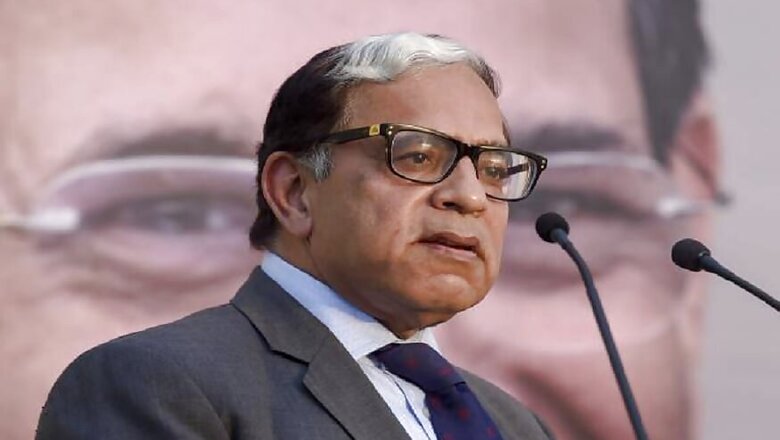Covid-19 Taught us Importance of Technology like Digitisation, Video Conferencing: Justice A K Sikri

views
Former Supreme Court judge, Justice A K Sikri on Friday said that COVID-19 has taught the importance of digitisation, paperless format of courts and videoconferencing and incorporating these technologies would help in better court management as well as efficient and cost effective arbitration.
Justice Sikri expressed his view while inaugurating the Indian Dispute Resolution Centre, which according to its website has been set up "to provide an institutional environment, both online and offline, for resolution of all kinds of disputes".
In his keynote address at the webinar event, Justice Sikri said,"COVID-19 has taught us that this (digitisation) is the future. In future, we need to have two or three dedicated courts which conduct proceedings via videoconferencing only....By incorporating this technology, we can save a lot as there will be better court management and if this is applied to an institution, not only would the conduct of the arbitration be more efficient, it would be cost effective also."
On the condition of international arbitration here, he said it is a well known fact that "in India we have not been able to set up till date any institution of world repute (to conduct arbitrations)".
"Because of that, today, insofar as international arbitration are concerned, in India it is virtually non-existent. The few institutions that are here, like FICCI, mostly cater to domestic arbitration," he said and added that only ad-hoc international arbitration takes place here.
On the arbitration culture in India, Justice Sikri said that the international community "sees us as a suspect" with regard to enforcement of arbitration awards.
"In India we have to generate that kind of arbitration culture in which the international community will have faith and trust, he said and added that in order to bring arbitration reforms, we need to have laws which are "international compliant" -- "that is laws which are same in all countries so that one does not say that arbitration process in one country is better than the other".
On conduct of arbitration, he said that in the commercial world people prefer arbitration instead of going to courts as it has many advantages -- like "confidentiality, party autonomy, option to choose an arbitrator" -- which are not available in normal litigation.
The other basic requirements of arbitration are -- it has to be cost effective and efficient, he said.
On the difference between institutional and ad-hoc arbitration, Justice Sikri said that the latter as its advantages, like flexibility of procedure and timings.
However, this very flexibility, in Indian context, also delays the arbitration process, he said.
"Therefore, it derails the arbitration process," he added.
"From this angle, institutional arbitration would be able to take care of this malaise and thus, we need an institutional arbitration," he further said.
He also said that benefits of ad-hoc arbitration can be achieved by institutional arbitration also, provided that they function in a particular manner, "like having a panel of specialist arbitrators, arbitrators with impeccable integrity and transcribers...which we are lacking in India."
"Institutional arbitration clause would be there in Indian contracts only if there are institutions which are trustworthy," he said at the conclusion of his keynote address.


















Comments
0 comment